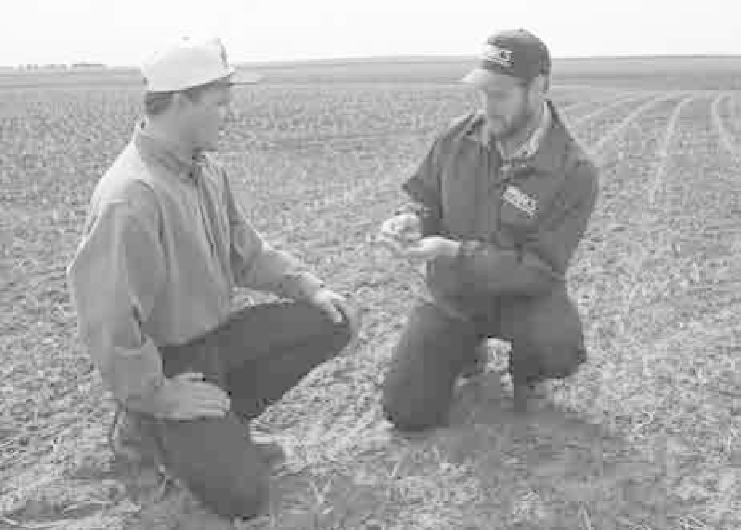Agriculture Reference
In-Depth Information
Communication
Effective communication is critical to good supervision. It is the manager's responsibility,
not the subordinate's, to ensure good communication. Although one would hope that the
subordinate would try to communicate objectively, the superior has no assurance of that, and
so must assume that responsibility personally. Approaching communication from the adult
perspective (i.e., taking a “step back,” and not getting sucked into a “cat fi ght,” or “he said,
she said”) can help the supervisor avoid getting “hooked” and losing control of the situation.
Professionals need to maintain control.
Strokes
Every person has the need to feel valued and recognized by others. Any recognition
of another person's presence is known as a stroke. It could be a word, simply “hello.” It
could be a gesture—a smile or nod. It could be a touch—a handshake or an actual pat on
the back. A stroke is anything that says, “I know you're there.” We have all experienced
them, and we know the “warm fuzzy feeling” they give us. This is what an agribusiness
manager should strive for. They should be appropriate and not overused, but can be effective
motivators.
Strokes are necessary for growth and survival. Some people need many strokes in order
to feel socially secure. For a great number of people, a primary source of strokes is their job.
Plate 16.2
Producer and consultant
Serving as a consultant or advisor to customers can help fulfi ll the need for self-actualization.
Photo courtesy of USDA Natural Resources Conservation Service.

